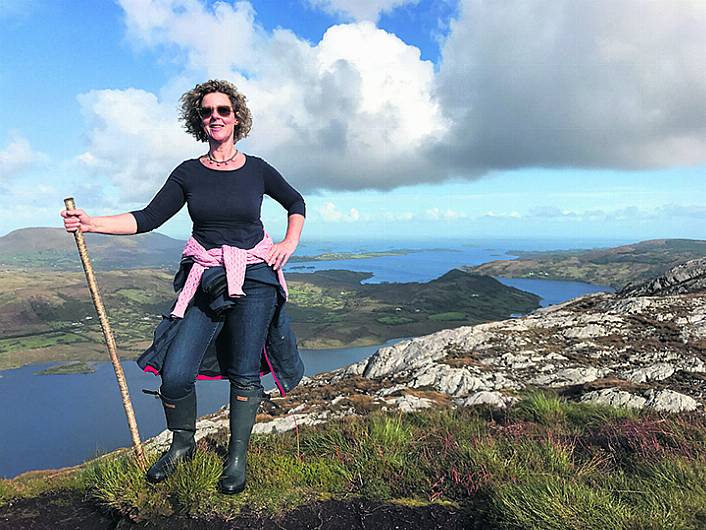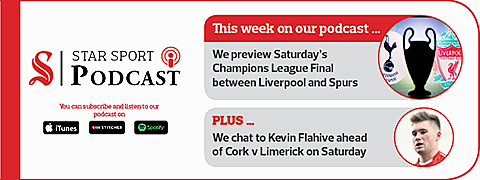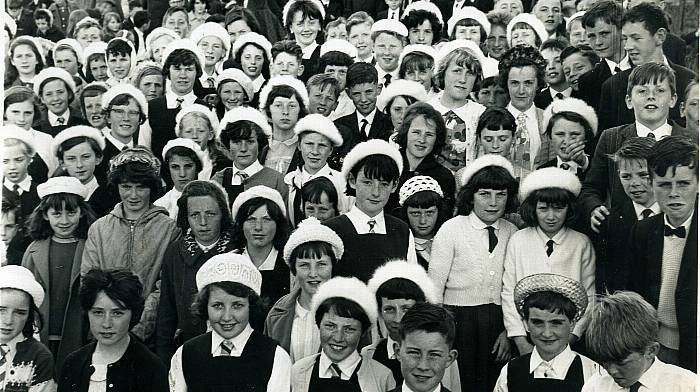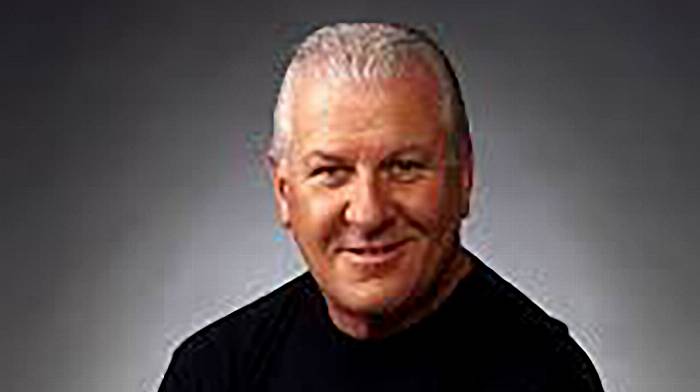Rachel Gotto, originally from Glandore has rebuilt her life after a brain tumour, paralysis and drug dependency, and has now written a book to show others that finding happiness, regardless of what life throws at you.
Rachel Gotto, originally from Glandore has rebuilt her life after a brain tumour, paralysis and drug dependency, and has now written a book to show others that finding happiness, regardless of what life throws at you, is truly possible
A WEST Cork woman has overcome major trauma in her life including the death of her husband while six months pregnant, and recovering from what was considered an inoperable brain tumour to find real happiness.
And now Rachel Gotto (née Bendon) originally from Glandore, is writing a book to help others become the architects of their own future.
Rachel became a widow 21 years ago when she was aged 29 after her husband Nic drowned in a diving accident on the wreck of the Kowloon bridge.
She had only been married to the fisherman for six months and they were living in Union Hall.
‘I was six months pregnant at the time and we were on a diving trip with clients of our recreational diving business in Union Hall. I waited in the boat for Nic to return but he didn’t make it back. His equipment malfunctioned and he drowned,’ she said.
That was in July 1998 and baby Nicola was born that December.
The tragedy occurred just shortly after losing her beloved brother Dominic to cancer, whom she had nursed.
And in another serious blow in 2005, Rachel, was diagnosed with an inoperable benign brain tumour.
She remembers her strange symptoms which she put down to the trauma she had been through.
‘I remember losing the use of my legs at night and having to crawl to give Nicola her bottle. Another time I couldn’t figure out how to get out of the car but it had never occurred to me I might be gravely ill.’
One day she fell unconscious only coming around after Nicola sat on her.
‘As we lived alone I had always trained her what to do in case of an emergency which was to call Grandma. We had a cordless phone but on that particular day I hadn’t replaced it, so she couldn’t,’ she remembers.
The alarm was raised and Rachel was diagnosed with a benign brain tumour
‘Doctors were not optimistic for my survival and I was advised that it might be prudent to begin making arrangements for Nicola as the prognosis wasn’t good,’ she remembers.
But Rachel didn’t give up and began touring hospitals to find someone who would offer her the chance of life. Finally a surgeon was found in the UK who agreed to do the surgery but said that if she survived she would be left paralysed for life.
‘I had written my will and letters to Nicola for when she was older. I had prepared myself to die but not for a life of paralysis which is what happened. After the 13 hours surgery I was left paralysed on my left side.’
She was moved after some time to a brain injury unit in Bristol and then eventually back home where her family had cared for her daughter.
The use of her leg returned quite quickly but it took years and years for her arm to improve which was even more cruel considering she was left handed.
With so much to overcome, Rachel began the slow and painful process of putting a new life together. Learning to live without her brother and her husband, being a lone parent and learning to become independent again was a struggle.
On top of other challenges, Rachel had to overcome a dependency to the benzodiazepines that she had taken on prescription for the crippling epilepsy that she developed post-surgery.
She describes her epilepsy as like being ‘possessed from the inside out.’
‘My left arm and leg would take on a life of their own. It was a miserable painful time. I had a huge physical dependence on benzos for nine years; I was deeply anxious, depressed, agoraphobic, my rational thinking mind was obliterated and I was very impulsive.
‘I was constantly told this was my life; it was so tough. I slept all day while Nicola was at school.’
During this time the mother and daughter lived in both Kilbrittain and Italy where they moved initially for a relationship of Rachel’s, and where they remained for two years after it ended.
But despite all she was going through, she carried a hope that somehow, someway, she would lead a normal life again.
‘I wanted to offer my daughter a life with a mum who was emotionally available. I simply had to get well. I began the process of growing my strength, both on a physical level and emotional level, and I made it my business to be well. From somewhere in my heart came the absolute determination to do whatever it took for me to recover’.
Eventually she began to research her medication and over the course of two years managed to wean herself off the benzos she had been perscribed. It was an horrendous time she recalls as she suffered 47 symptoms associated with withdrawing from the drug including suicidal ideation.
‘At one point I was taking six prescription drugs, four times a day. I’m now drug free for two years,’ she said proudly.
In total it took over a decade and it wasn’t easy but forwarding to today Rachel leads a happy and fulfilling life at her home in Barna, Galway where she lives with her partner Malcolm, a gaggle of hens and their Elk hound, Echo. The only reminder of her paralysis is a left hand that doesn’t really work. Most importantly, her daughter Nicola, who will be 21 this year, is thriving and so is Rachel’s new business as a Clinical Hypnotherapist and Rapid Transformational Therapist.
Rachel’s efforts to try and change her mindset during her recovery led her to try many strategies to get well, and ultimately led her to train with Marisa Peer, founder of Rapid Transformational Therapy, in London.
‘My new career as a Clinical Hypnotherapist is a passion, precisely because the neuroscience that underpins it – the idea that you can ‘train the brain’ – resonated heavily with my own story. If we want and are committed to change, it’s possible to establish new thought patterns that support happiness rather than sabotage it.’
That she is living proof of this kind of transformation makes her all the more compelling to her clients. ‘I’m fully functioning without any medication and feel so emotionally well. I’ll be 50 on May 20th and will be celebrating that. I was deprived of earning a livelihood for over two decades and now that I’m working I’m so super impressed.’
Rachel visits West Cork, regularly to see family (her father founded one of the first marine chandlers in the country in Glandore in the 60s and her brother runs CHMarine in Skibbereen) and close friends.
Next up is her plan to take her message to a wider audience. Not only is she moving into motivational speaking on topics such as wellness, resilience, happiness and overcoming loss she is also in negotiations to have her memoir published later this year. The aim? ‘I want to inspire others that they too can overcome whatever life throws at them, and enjoy a quality of life they previously believed impossible,’ she said.








